The team here at Ceramic Materials Workshop recently had the pleasure of partnering with the brilliant folks over at Hammerly Ceramics, and let’s just say, sparks flew (the good, non-kiln-malfunction kind!).
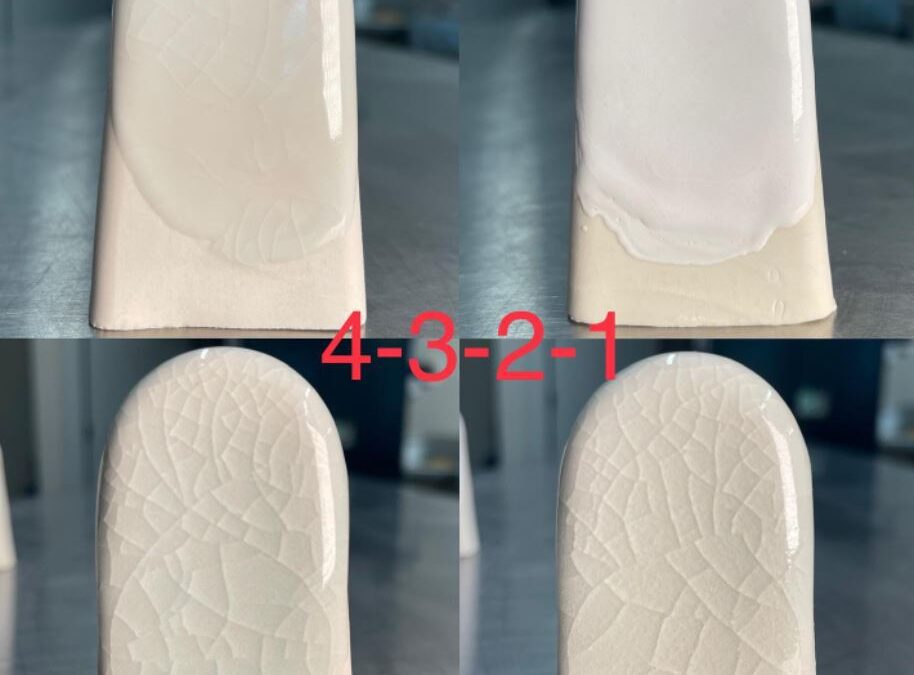

by The CMW Team | June 8, 2022 | Glazes, Informative
Reduction is a new concept for a lot of people, that’s because the majority of people are firing in electric kilns, which basically only fire in Oxidation (there are some ways to do it, but they aren’t the safest or most stable). The Heat is ON! A Beginners Guide to...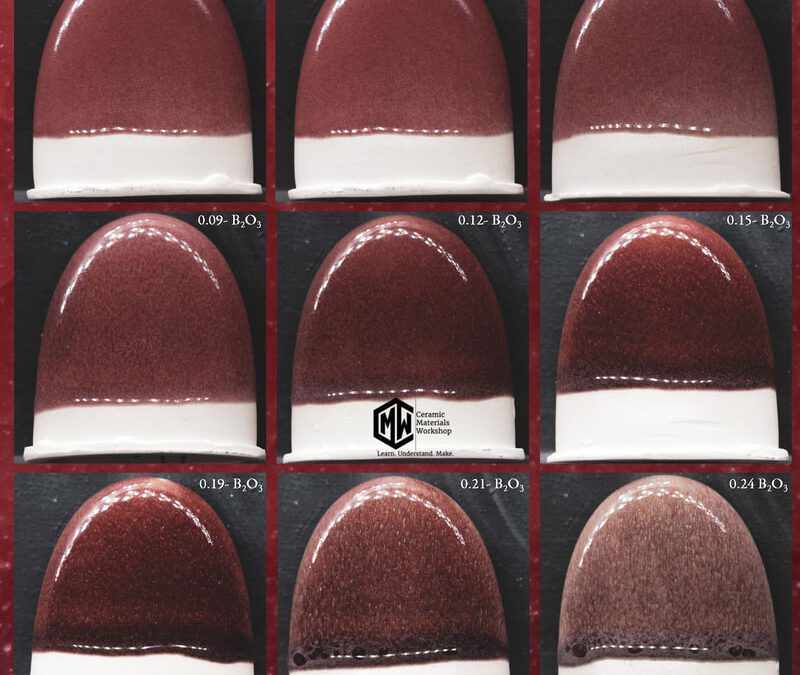
by The CMW Team | June 19, 2019 | Glazes, Informative
Welcome back to the Ceramic Materials Workshop blog! Today, we’re delving into the fascinating world of boron, a somewhat mysterious element that plays a crucial role in many ceramic glazes. What is Boron? Boron is a metalloid, meaning it straddles the line...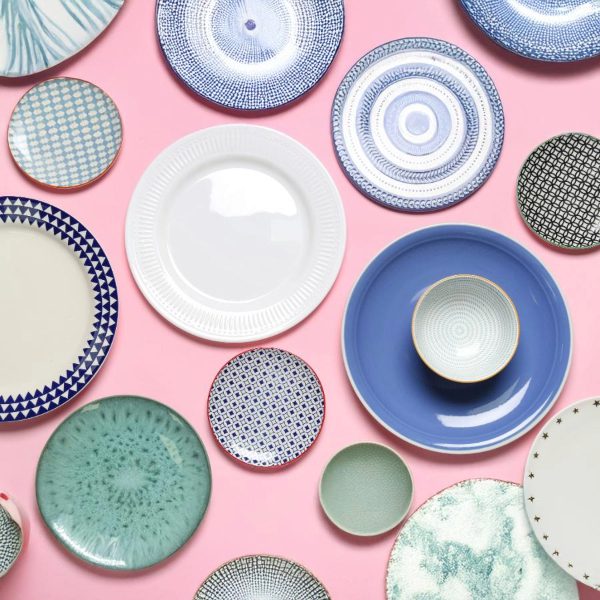
by The CMW Team | June 13, 2019 | Beginners Guide, Clay, Glazes, Informative
I’ve had a few conversions recently about glaze durability. Here is my article that I published in the 2016 NCECA journal on that subject. I looked into the the question of why glazes are durable or not and found that we are able to correlate the overall...Empowering our ceramics community is at the heart of what we do. Discover a wealth of resources designed to support your ceramics journey. Our community resources page offers easy access to Free Courses, UMF Calculators, Commercial Clay Body Profiling Date and much more.
Welcome to the Workshop. Explore our website to see how we can help you achieve your goals. - Rose and Matt Katz
Currently, we offer several course options to fit your schedule and learning style no matter where you live! All of our courses feature an in-depth study of glazes and clay bodies with hands-on lab testing and live discussions with the instructor and other students.
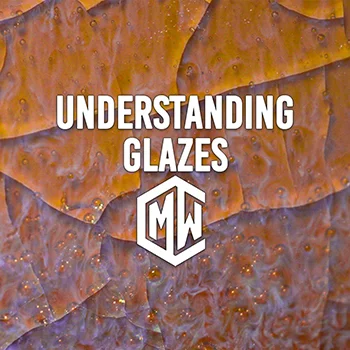
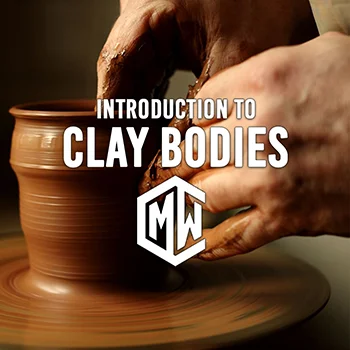
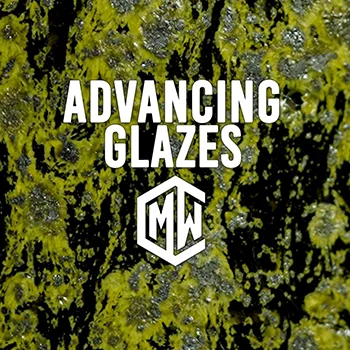


Understanding Glazes is our most popular online course, providing a clear and comprehensive foundation in glaze chemistry. Learn how glaze materials interact, troubleshoot common issues, and formulate your own unique glazes.

Take Control of Your Clay. Intro to Clay Bodies empowers you to understand the materials in your clay and how they impact your work. Learn to troubleshoot issues and refine your clay for peak studio performance.

Ready to Experiment? Advancing Glazes builds on your foundational knowledge with in-depth lab experiments and a self-directed glaze project. Explore the nuances of glaze chemistry and unlock advanced techniques.

Unlock the Magic of Crystalline Glazes. In Crystal Ball, you'll learn the secrets and techniques to create breathtaking crystalline effects on your pottery. Discover how to grow these unique and captivating glazes.

Your Pottery Journey, Your Schedule, Your Savings. Our monthly memberships and bundles offer a convenient and cost-effective way to learn at your own pace. Access a wealth of knowledge and save while you expand your skills.

Welcome to the Workshop. Explore our website to see how we can help you achieve your goals. - Rose and Matt Katz
Ceramic Materials Workshop is the place online to understand and explore how and why our Clay and Glazes work (and don’t work). Learn more about our team and workshop!
Good People / Great Team
Welcome to the Workshop. Explore our website to see how we can help you achieve your goals. - Rose and Matt Katz
Ceramic Materials Workshop is your trusted partner in ceramic innovation. With over 25 years of experience working with a diverse range of ceramic manufacturers, we provide comprehensive consulting services to help you achieve your goals.
Welcome to the Workshop. Explore our website to see how we can help you achieve your goals. - Rose and Matt Katz
Join the Conversation! Connect with us across our media channels. Listen to our podcast, explore our blog, watch our videos on YouTube, and engage with us on social media for the latest news, ideas, and community updates.

The team here at Ceramic Materials Workshop recently had the pleasure of partnering with the brilliant folks over at Hammerly Ceramics, and let’s just say, sparks flew (the good, non-kiln-malfunction kind!).

Understanding how these tariffs work and, more importantly, how to strategically respond, is crucial for the resilience and future success of ceramic artists and businesses.
Welcome to the Workshop. Explore our website to see how we can help you achieve your goals. - Rose and Matt Katz
Build Your Ceramic Foundation, Your Way. Our self-guided workshops offer an accessible starting point for understanding basic glaze chemistry. Learn essential skills at your own pace, whenever it suits you.

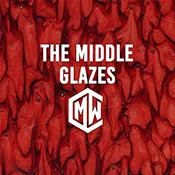
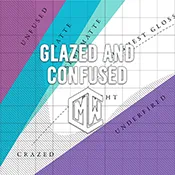

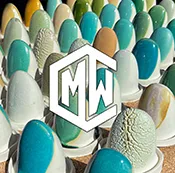
New to Glazes? Start Here! Glaze of Our Lives is our on-demand online workshop designed for absolute beginners. Learn what glazes are and how they work, no prior experience needed!

Unlock the Potential of Cone 6 Glazes. Dive deep into Mid-Temperature glazing with The Middle Glazes, a comprehensive 54-part course exploring the techniques and possibilities of this incredibly popular firing range.

Our short workshop, Glazed and Confused, will guide you through the Unity Molecular Formula and demonstrate how it can be a powerful tool for troubleshooting and improving your glaze recipes for a better studio experience.

The Complete CMW Glaze Workshop Bundle. Get all three essential CMW glaze workshops – Glaze of Our Lives, The Middle Glazes, and Glazed and Confused – for one great price!

Lorem Ipsum

Welcome to the Workshop. Explore our website to see how we can help you achieve your goals. - Rose and Matt Katz